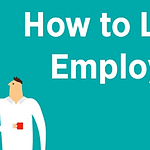‘The High Pay Commission references eight different studies showing that the difference between the pay of an organisation’s highest and lowest paid employees negatively effects employee engagement. Moreover, The Commission also cites ten commercial studies showing that higher employee engagement improves business performance in terms of increased productivity and reduced staff turnover, days lost to unexplained absence, and training and recruitment costs (High Pay Commission Report 2011). One obvious reason for the negative impact on engagement is that leaders earning pay differentials many times that of their average workers cannot make the case that we’re all in this together. For example, within FTSE 100 companies, CEO pay has gone from being around 40 times that of the average employee in 1998, to 140 times in 2011. Furthermore, while FTSE 100 CEOs have awarded themselves a 480% pay rise since 1998, the wages of the average worker have risen from around £22,500 to £26,500 over the same period, an increase of about 15% (The Manifest/MM&K Executive Director Total Remuneration Survey, June 2012).
This isn’t an area that has had much prominence in our debate as a movement so far. I’d be fascinated to hear other people’s views on the relevance of this topic to engagement. If there is enough interest, we could start a Special Interest Group to further the debate.
If you are interested in the topic please contact iandodds@iandoddsconsulting.com




